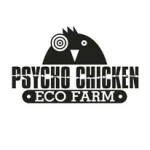In response to question 13 on the 2015 survey of organic farmers by the organic farming research foundation: http://opinion.wsu.edu/agresearch/
What is your most pressing production issue right now? Please describe.
I said:
Economics. The farm cannot produce enough revenue to sustain itself while paying a living wage to farm workers. The importance of this problem cannot be overstated. Real-estate as a commodity, combined with depressed food prices from agribusiness put the small organic farmer at great economic peril where land prices are so high, and revenue from farm produce so low that unless farm owners are willing to work two or three jobs, there is no path to economic sustainability, and we are forced to rely in ‘intern’ or ‘slave’ labor to keep the operation from going under. Buncombe County, where our small farm resides, has lost 1/2 of it’s farmland to development or real-estate prospecting in the last 40 years. Without aggressive conservation methods, zoning development out of farmland, and locking in discount pricing for farmers who agree to permanently reserve that land for farming, we’re faced with dire consequences.
In Essence, “We’re Doomed.”
There is no protection for pristine farm land, which is highly sought after by wealthy developers willing to pay more than twice many farmers could hope to make in a lifetime of farming. That combined with depressed food prices from unsustainable labor and agribusiness practices, small farming is not a viable “career choice” for anyone who can do simple math. The economics aren’t there, and without external monetary inputs, the small American farm dies.





